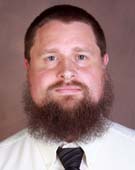Bachelor of Science in Physics
The Physics Program offers a rigorous curriculum and flexible career choices. The Applied Physics option provides both fundamental courses that lead to a deep understanding of physics and hands-on courses where students learn practical technical skills. The Applied Physics option provides career opportunities such as graduate school, engineering, or high-tech companies. It prepares students to excel in technical careers based on a background of physics, mathematics, and computer science. The Physics Education option prepares those students who would like to pursue a career teaching in a secondary school. Teaching physics and science to middle and high school students is a rewarding profession that enables students to achieve their dreams and that prepares them to live and work in a science and technology rich society. Good science teachers are in high demand and the teacher candidates learn both science content and how to teach science effectively.
Student Learning Outcomes
- Solve quantitative problems in classical mechanics, electricity & magnetism and modern physics.
- Interpret mathematical models such as formulas, graphs, tables and schematics.
- Apply appropriate mathematical concepts and models for solving problems in classical and modern physics.
- Analyze experimental results.
- Design an experiment(s) to test a hypothesis.
- Interpret experimental data to make meaningful comparisons between experiment and theory.
- Identify sources of experimental uncertainty and error.
- Present research in a form consistent with the American Institute of Physics style manual
- Relate research to a general audience.
Program Requirements
For more information about degree requirements, visit the NSU catalog.
Select one of the following options:
Required Courses - 27 hours
- ENGR 3413 - Thermodynamics
- MATH 2634 - Calculus III
- PHYS 3004 - Scientific Computation
- PHYS 3103 - Mathematical Methods in Physics
- PHYS 3113 - Mechanics
- PHYS 4114 - Electrodynamics
- PHYS 4323 - Physics for Engineers
- PHYS 4350 - Special Topics in Physics (1 hour)
- PHYS 4901 - Research in Physics (2 hours)
Electives - 6 hours
Select 6 hours from the following:
- CHEM 4523 - Chemical Thermodynamics
- CHEM 4531 - Experimental Physical Chemistry
- CHEM 4623 - Quantum Chemistry and Dynamics
- CHEM 4631 - Applications of Computational Chemistry
- CS 3173 - Basic Computer Architecture
- CS 3223 - Programming Languages
- CS 3343 - Computer Operating Systems
- CS 4553 - Parallel Programming
- MATH 3513 - Statistical Methods
- MATH 3623 - Mathematical Statistics
- MATH 3713 - Abstract Algebra I
- MATH 3983 - Linear Algebra
- MATH 4113 - Differential Equations
- MATH 4123 - Partial Differential Equations
- MATH 4233 - Numerical Analysis
- MATH 4303 - Complex Analysis I
- MATH 4403 - Mathematical Modeling
- MATH 4413 - Vector Analysis
- PHYS 3623 - Wave Optics
- PHYS 4254 - Quantum Mechanics
- PHYS 4350 - Special Topics in Physics
Professional Education Requirements (Secondary) - 29 hours
-
CLINICAL INTERNSHIP / PRE-I INTERNSHIP SEMESTER
- EDUC 3313 - Clinical Teaching/Pre-Internship I - Can be taken prior to admission to teacher education. Apply for admission to teacher education during this semester.
- EDUC 3113 - Educational Psychology - Can be taken prior to admission to teacher education.
-
PRIOR TO PRE-II INTERNSHIP
- SPED 4433 - Introduction to Education of Children with Exceptionalities - Can be taken prior to admission to teacher education.
- EDUC 4823 - Technology and the 21st Century Learner
-
PRE-II INTERNSHIP SEMESTER
Students should take these courses the semester immediately before the full internship (student teaching).
- EDUC 4032 - Pre-Internship II - Must be admitted to teacher education. Apply for admission to Pre-II the semester before enrollment. This course should be taken the semester immediately before the full internship semester.
- EDUC 4353 - Secondary Teaching Methods and Practices - Must be admitted to teacher education. This course should be taken the semester immediately before the full internship semester.
- Content Methods Course (see above)
-
FULL INTERNSHIP SEMESTER
- EDUC 4064 - Secondary Intern Teaching (Full Internship Program)
- EDUC 4074 - Secondary Intern Teaching
- EDUC 4172 - Assessment and Evaluation
- EDUC 4252 - Seminar
Teacher Education Admission and Certification Policies
In addition to courses in the discipline, all students completing a baccalaureate degree that leads to teacher certification must meet the following requirements for certification.
- Be accepted for admission to teacher education, pre-II internship, and full internship according to published course sequence and guidelines.
- Demonstrate proficiency at the high novice level in a language other than English.
- Complete all courses in the major and Professional Education Core with a grade of “C” or higher.
- Students entering NSU beginning Fall 2013 must have an overall GPA of 2.75 for admission to teacher education.
- Once admitted to the teacher education program, all majors must continue to maintain a GPA of 2.5 (overall and in their major field of study) through completion.
- 4 X 12 requirement - Early Childhood, Elementary Education, and Special Education programs require completion of 12 semester hours with a grade of “C” or better in the following disciplines: Communication Arts (English, Communication, Literature), Math, Science, and Social Science (Economics, Geography, History, Political Science, Psychology, Sociology) prior to graduation.
- All Professional Education majors must complete PSYC 1003 or PSYC 1113. Advisors recommend those courses be completed as part of the General Education course sequence.
Degree Available at
- Tahlequah
- Broken Arrow
Transferring to NSU?
Make your transition to NSU as smooth and seamless as possible.
Visit Transfer Student Services for more information.
Career Services
What can I do with a major in Applied Physics?
Program Chair:
 Dr. James Hicks
Dr. James Hicks
hicks07@nsuok.edu
(918) 444-3834
